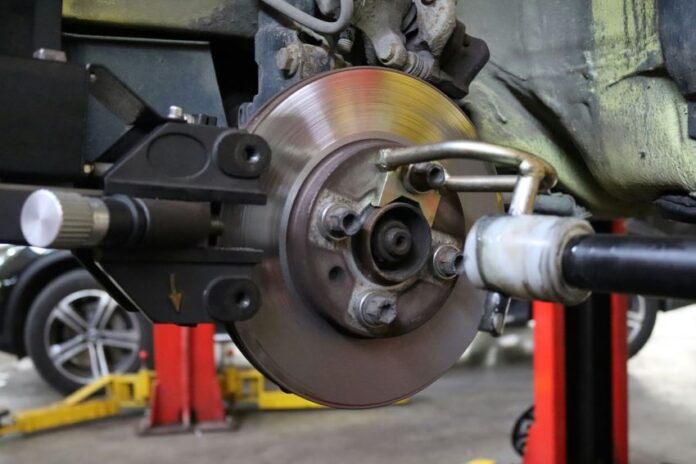The National Auto Parts Industry (INA) reported that 92% of the Mexican auto parts sector will not be subject to new tariffs from the United States, as nearly all manufacturing complies with current trade rules.
Gabriel Padilla, general director of Mexico’s National Auto Parts Industry (INA), told reporters on Monday that only about 8% of the nation’s parts manufacturers are not in compliance with U.S.-Mexico-Canada Agreement (USMCA) regulations. As a result, they will be hit by an average tariff of 27% to export to the U.S.

On April 29, U.S. President Donald Trump signed executive orders to scale back tariffs on the auto industry as it became evident that the import taxes threatened to hurt U.S. manufacturers. Mexico’s President Claudia Sheinbaum said the move provided Mexico’s industry with an “additional comparative advantage.”
On May 2, the U.S. Customs and Border Protection (CBP) published a notice confirming that the new rules would take effect the following day. Shortly after, Sheinbaum announced that the 25% tariffs would not apply to auto parts made in Mexico that comply with USMCA rules.
With the new tariff rules in effect, INA is consulting with Mexico’s Economy Ministry to help those companies not in compliance. Such firms face the 25% tariff plus the Most Favored Nation (MFN) tariff — which ranges from 2% to 3% — because they initially import specialized component parts into Mexico, Padilla said.
The MFN tariff is the standard tariff rate a country applies to imports from other World Trade Organization members, unless a preferential trade agreement is in place.
During the first two months of the year, auto parts production declined 10.5%, though Padilla expects March figures to improve due to the increase in production and sales of automobiles in the United States. This increase has been attributed to consumers’ desire to buy cars before the original tariffs were due to take effect on April 3.
Although Mexico’s auto parts industry — comprising more than 2,000 factories — has an extremely high compliance rate with the USMCA, the sector faces several challenges.
Padilla said regional integration must be strengthened, while the supplier development program must increase regional content. INA is working to diversify markets and suppliers to reduce dependence on single sources by expanding commercial alliances and diversifying suppliers.
The Mexican auto parts industry’s production value surpassed US $100 billion in each of the past two years, with INA attributing the growth to the nearshoring trend and the expansion of domestic manufacturing clusters.
Mexico’s automotive industry represents 3.6% of GDP and 20% of total exports. Mexico is the world’s fourth-largest exporter of auto parts, with the United States as its main destination.
With reports from El Financiero, Mexico Now and Yahoo! Finance
